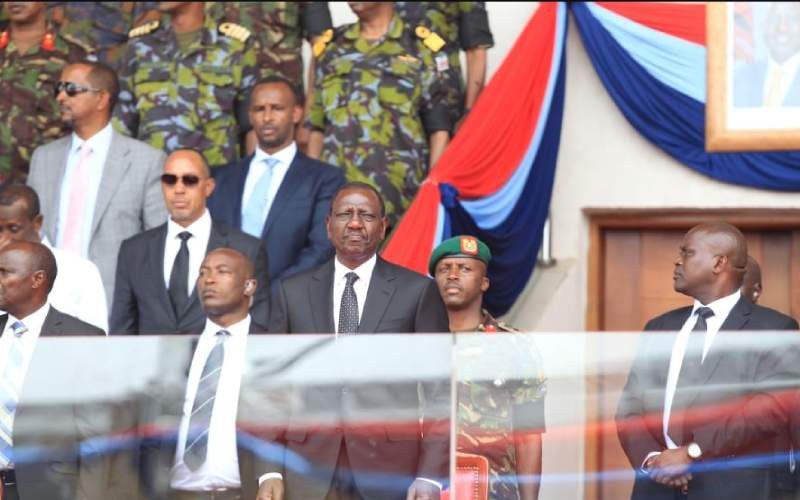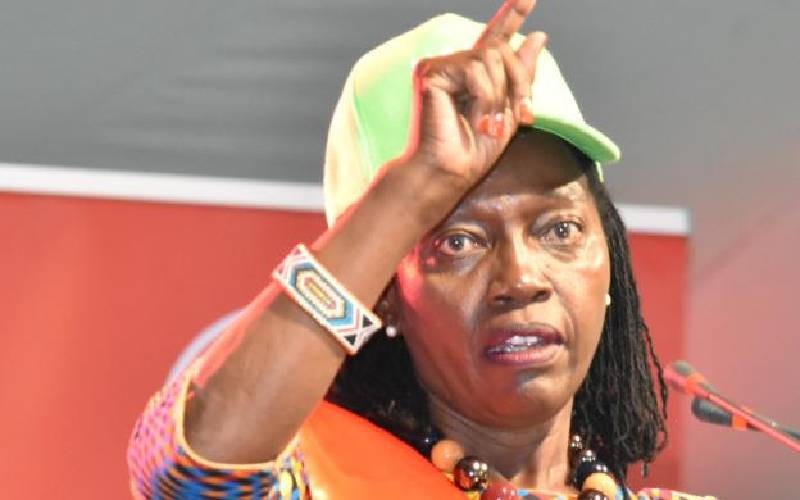By Barrack Muluka
The wheels of history roll with fascinating rhyme and rhythm. Attendant to this are the contradictions and contractions of reality within time and space. The base season famously known in European history as the Medieval Age is a good case in point. The converse is the glorious African condition in the same period.
The Medieval Age (5th to 15th centuries AD) was a period of collapse in Europe, a debauched season. It was marked by the collapse of the glory that was Rome (also referred to as the end of Classical Antiquity) and the start of the Modern Age – the Age of Discovery (the Renaissance).
The European Medieval Age was marked by barbarian invasion of one society by another, depopulation, de-urbanisation, and general debauchery of one people against another. Admittedly, religion, scholarship and agriculture made a spirited strife for space and relevance within this lulled period. But overall there was collapse in ancient science, antiquarian art, in peace and security. In the fullness of time, this debauchery flowed all the way to parts of North Africa.
Conversely, the same age was witness to continued flow of African glory. Africa distinguished itself in mathematics and in the sciences from Antiquity. We read of Rhind Mathematical Papyrus in Egypt as early as 2000 BC and of the Moscow Mathematical Papyrus (Egyptian Mathematics at about 1890 BC). Other sources have suggested that the earliest known mathematical object is the Lebombo bone, discovered in Swaziland and said to date to about 35, 000 BC.
This bone had 29 distinct mathematical notations, denoting existence of a mathematical society in Africa that early. Elsewhere in the Congo was found the Ishango bone. It dates back to about 20, 000 BC. But rock adornment in South Africa suggests that geometry could have been “studied” here as early as 70, 000 BC.
The European Medieval Age for its part coincides with the Age of Gold and Glory in Africa. It is the Age of the magnificent Kingdoms of Ghana, Mali and Songhai, for example. In this age, King Mansa Musa of Mali brought the economies of Cairo, Mecca and Medina to near collapse because of the gold he carried with him on his famous pilgrimage to Mecca in 1324.
We are also aware that in that age of glory in Africa and misery in Europe, people did not stay in one place permanently. They established new homes, as fate and circumstance dictated. That is why Mark Anthony says in Shakespeare’s Anthony and Cleopatra, “Kingdoms are made of clay.” They rise and fall. But all this was before two defining happenings in history. In Europe it was the Peace Treaty of Westphalia (1648). In Africa it was the quartet of the scramble, partition, colonialism and the independent state.
In Europe, Westphalia introduced the notion of state sovereignty and territorialism as we know it. Leaving out the details, it suffices to note that after this treaty (which was actually a series of treaties), it was no longer possible to gallivant all over the place, conquering people at will and establishing new colonies. There are exceptions of course – as in the Unification of Germany and that of Italy. But the issue is that territorial confinement had arrived.
In Africa before the Quartet, you could find new settlement elsewhere if you were unraveled at home. We read of such great migrations as the Luba Lunda Dispersion, the Bantu Expansion, the Luo Migration, the Ngoni and allied migrations by diverse peoples from Southern Africa. You founded new settlement because you discovered virgin territories. If there were no virgin territories, you subdued and absorbed those you found in the way. Alternatively, you just drove them away and established yourself here. With these disruptions died our science, mathematics, art and all.
Meanwhile, the Colonial Quartet redefined African territorialism and sovereignty. We are now willy-nilly territorial. Whether we can rediscover our glorious past is very much predicated upon our prioritisation of issues. Many times we behave as if we could still push whole ethnic communities out of the new nation state, or alternatively live with them as some kind of indentured slaves.
I have often been confronted with this question, “Why do you waste time looking for votes among people who will never vote for anybody outside their community?”
I consider that this is unfortunate logic. Free and fair elections are only validation of mandate. True democracy, however, reposes in accessing participatory opportunity to every citizen, after electoral victory. It is critical that presidential candidates, for example, demonstrate that they value all citizens – including those who show hardcore resistance against their candidature.
Whether they vote for you or not, you cannot wish them away. Nor can you deny them free and fair participation in the social, economic and political life of the country after you accede to power. It is their democratic right and freedom not to like you and to deny you their vote. But it is wrong for you to reciprocate their hard-to-understand distaste for you by locking them out of your campaign activities.
Africa is today going through its own medieval age. There is collapse in the arts and music, in science and in the mathematics that once defined us. Unlike the European Medieval Age, you cannot invade or depopulate other people’s terrain. The world has changed. We are stuck together, for better or worse. If we are to rediscover African glory, the topmost leadership must demonstrate that democracy is about participation in opportunities. It must assure everybody, regardless that they have other political persuasions, that they will not be denied participation.
Stay informed. Subscribe to our newsletter
Focus must shift from just seeking to win an election to what election victory must mean to every citizen and to the nation. In Africa, we do well to recall that we have been a great people with great history. This glory has in our times been sacrificed at the altar of ethnic based animus within the dominant political class. We can regain and supersede past glory, by looking beyond elections.
The writer is a publishing editor and National Director of Communications at Raila for President Secretariat
 The Standard Group Plc is a
multi-media organization with investments in media platforms spanning newspaper
print operations, television, radio broadcasting, digital and online services. The
Standard Group is recognized as a leading multi-media house in Kenya with a key
influence in matters of national and international interest.
The Standard Group Plc is a
multi-media organization with investments in media platforms spanning newspaper
print operations, television, radio broadcasting, digital and online services. The
Standard Group is recognized as a leading multi-media house in Kenya with a key
influence in matters of national and international interest.
 The Standard Group Plc is a
multi-media organization with investments in media platforms spanning newspaper
print operations, television, radio broadcasting, digital and online services. The
Standard Group is recognized as a leading multi-media house in Kenya with a key
influence in matters of national and international interest.
The Standard Group Plc is a
multi-media organization with investments in media platforms spanning newspaper
print operations, television, radio broadcasting, digital and online services. The
Standard Group is recognized as a leading multi-media house in Kenya with a key
influence in matters of national and international interest.








